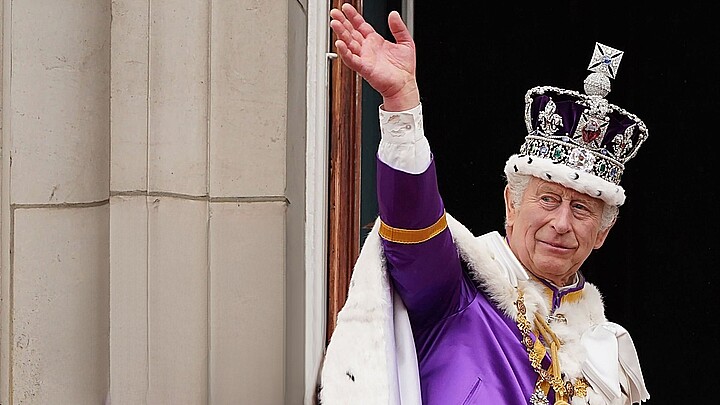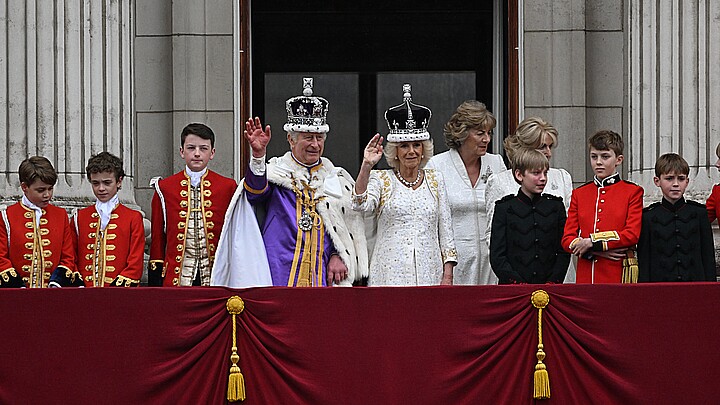Culture
BBC employees reportedly instructed not to attend London march against antisemitism
The BBC’s decision comes only days after the British network’s former director called the news organization “institutionally antisemitic”

November 25, 2023 10:01am
Updated: November 25, 2023 3:05pm
London based employees for the British Broadcasting Corporation (BBC) were reportedly ordered not to participate in an upcoming march against antisemitism this weekend, according to media reports.
According to The Times, a London based news outlet, the upcoming National Solidarity March Against Antisemitism was slated as too “controversial” for the news network’s employees.
Even Jewish employees were barred from participating in the demonstration.
The Times reported that BBC employees, including both staff writers and senior management alike, said the network barred them from participating in this weekend’s march. The upcoming rally “is set to be the largest demonstration in support of British Jews since the 1936 Battle of Cable Street,” according to Campaign Against Antisemitism, which the organization holding the event.
The Times also reported that BBC employees were barred from attending a separate pro-Palestinian rally as well.
The decision to bar employees from participating in the march is consistent with BBC guidelines regarding any “controversial march or demonstration,” according to some staff members.
The British based news network reated guidelines requiring that staff members should not “express a personal opinion on matters of public policy, politics, or controversial subjects,” in 2020.
This policy also covers participating in political rallies, the news organization asserts. Still, employees have not been prohibited from attending all rallies.
In the past, BBC has allowed their employees to attend pro-LGBTQ rallies.
Director General Tim Davie clarified to The Times that “there is no issue for these staff attending community events that are clearly celebratory or commemorative and do not compromise perceptions of their impartiality."
Several BBC employees took issue with that double standard, saying there should be no difference between marches opposing LGBTQ discrimination or racism and antisemitism.
One BBC staffer told the London based newspaper that, “Racism is racism and something we should all abhor, but not when it comes to anti-Jewish racism it seems. If the BBC believes that racism is racism and not acceptable in any shape or form then going on a rally against antisemitism shouldn’t be an issue.”
Leo Pearlman, a film production company co-founder criticized the BBC for their rationale, telling The Times: “Just when one thinks the BBC cannot find a new depth of incompetence to sink to in their reporting and handling of these tragic last six weeks, they seem to have decided to draw a clear distinction between antisemitism and every other ‘ism’ with this directive to their staff.”
The Times also quoted anonymous BBC staffers who disagreed with their supervisors’ rationale.
“You would have thought that antisemitism was pretty straightforward,” one BBC staffer said. “The world has turned on its head.”
Another staffer said that protesting “antisemitism is not the same as overtly political support for Palestinians. You can object to Israeli political positions and reactions but fundamentally resurrecting antisemitic tropes and Jew hatred is a completely different matter.”
The BBC defended its policies in a statement issued to The Times, insisting that it opposes antisemitism.
“The BBC is clear that antisemitism is abhorrent. We have established guidance around marches, which explains that different considerations apply depending on what you do for the BBC. Corporately, we have not issued any staff communication on any specific march this weekend, but this does not mean discussions which consider the guidance have not taken place between colleagues.”
The Campaign Against Antisemitism disagreed, however.
“Clearly, if these reports are accurate then it is an outrageous restriction for the BBC to place on its employees. Part of the problem that British Jews are facing is that antisemitism has somehow become a matter of debate with two sides. The BBC must urgently clarify which side it is on.”
The BBC’s decision comes only days after the British network’s former director called the news organization “institutionally antisemitic” in an column penned in the U.K. Telegraph.
“The problems started almost as soon as Hamas began its horrific attacks on October 7,” wrote Telegraph journalist Danny Cohen. “The BBC’s unwillingness to describe the burning alive of families in their homes, the rape of women and the murder of babies as a terrorist attack is now well known and stands in stark contrast with its reporting of other recent terrorist incidents.
“If it were possible, the BBC’s description of these massacres has actually become more egregious. BBC News has since described the pogrom of October 7 as a ‘cross-border attack’ as if it were a skirmish between two warring armies rather than the worst massacre of Jewish families since the Holocaust.”
The BBC is a British public news corporation that was founded in the United Kingdom in 1922. It has more than 21,000 employees and an operating budget of more than $5 billion.










